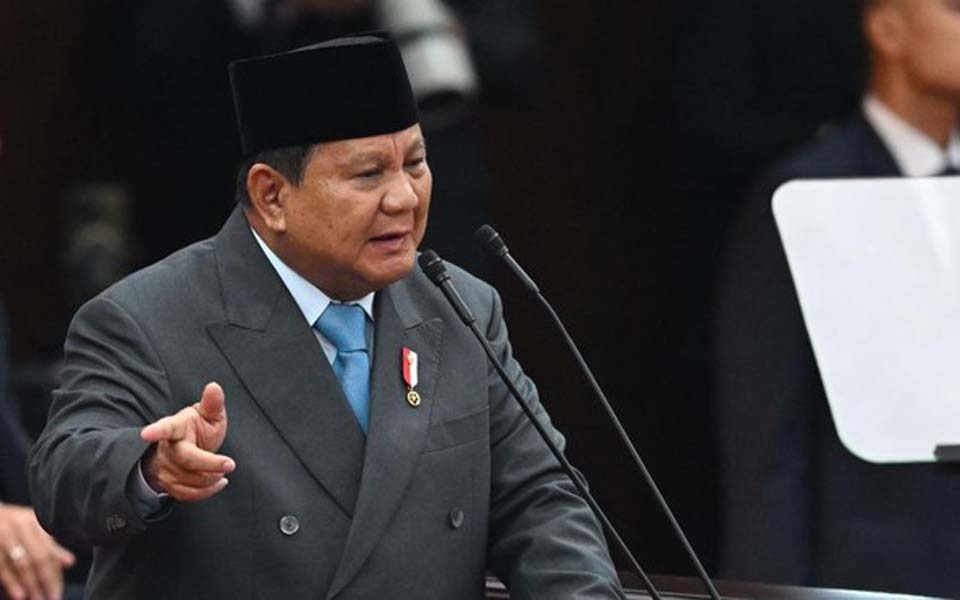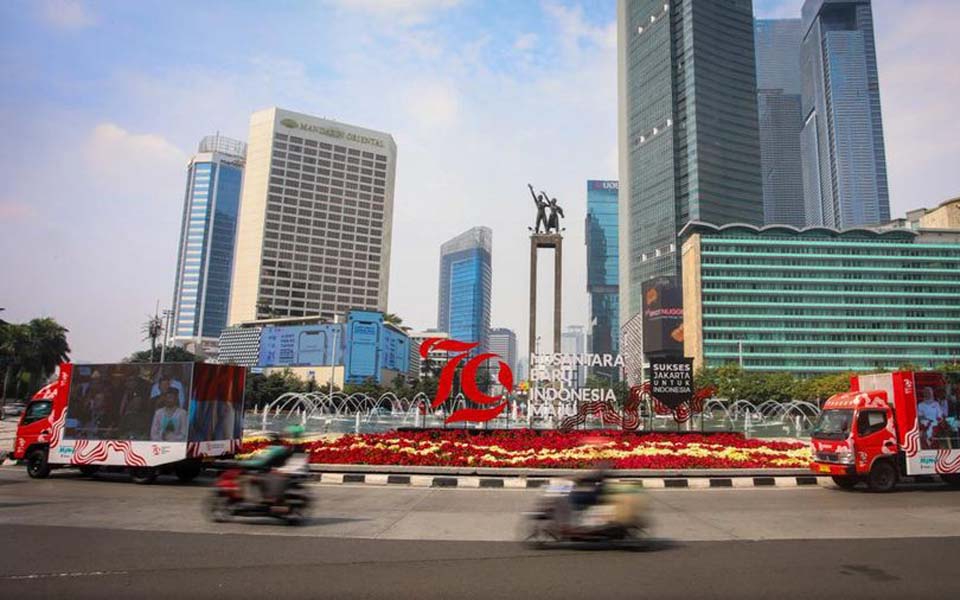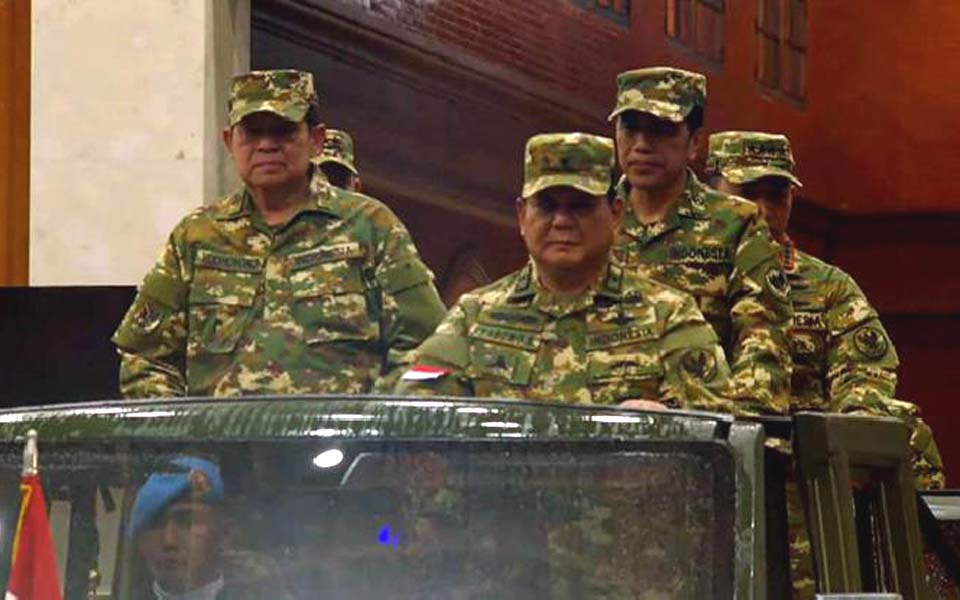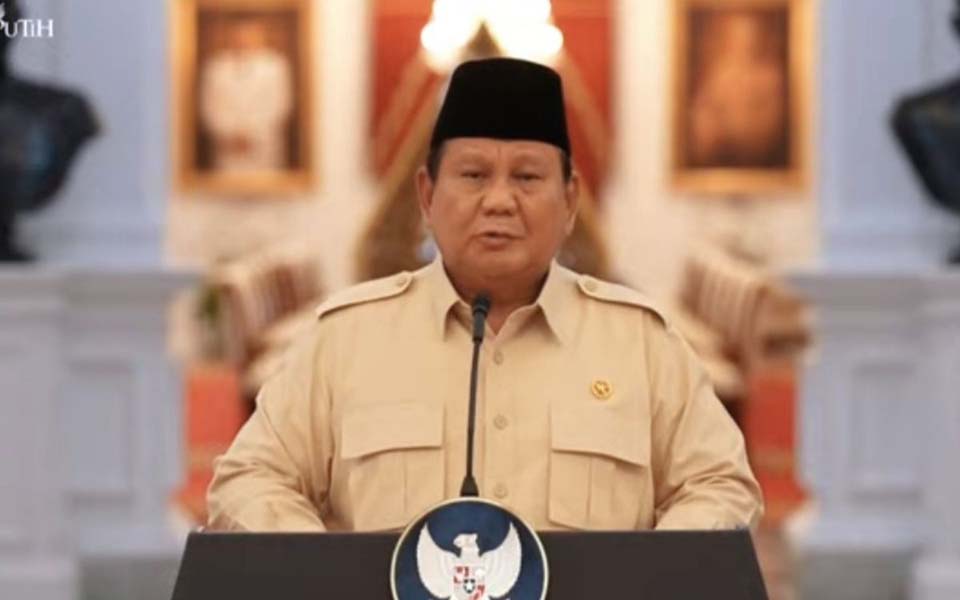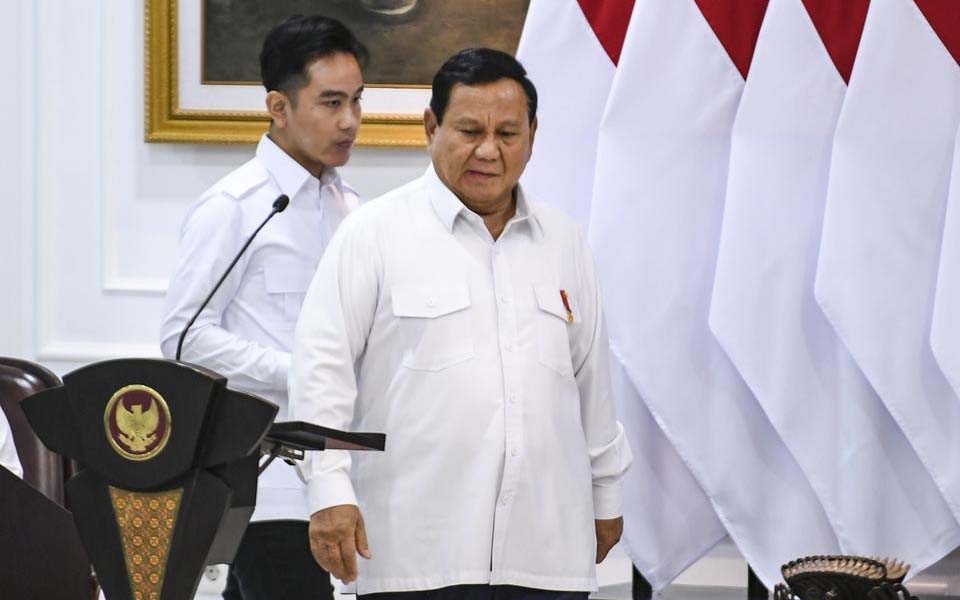Jakarta – The first year of the administration of President Prabowo Subianto and Vice President Gibran Rakabuming Raka has been assessed as not meting public expectations.
A Centre of Economic and Law Studies (Celios) survey gave Prabowo's Red and White Cabinet a score of 3 out of 10, down from a score of 5 in the first 100 days.
Celios Media and Fiscal Policy Director Wahyu Askar explained that the decline in the score reflects weak coordination between institutions, inconsistent public communication and the slow implementation of several priority programs.
"Pak [Mr] Prabowo Subianto received a score of 3 out of 10, while Gibran received 2 out of 10. Over the past year, many policies have not shown a real impact on the public", he said in an online one-year performance report of the Prabowo-Gibran administration on Sunday October 19.
Remove poorly performing ministers
The survey, which involved 1,338 respondents in 34 provinces, also highlighted the ten worst-performing officials who were recommended for reshuffle.
Celios believes that Minister of Energy and Mineral Resources Bahlil Lahadalia failed to maintain stability in the energy sector and his policy communication often led to public confusion. Several decisions were deemed inconsistent with regional needs, such as LPG management, stalled energy transition projects and the lack of improvement in electricity security in the 3T (disadvantaged, frontier and outermost) regions.
Meanwhile National Nutrition Agency (BGN) head Dadan Hindayana has been in the spotlight due to the mass poisoning cases suspected to have originated from food from the free nutritional meals (MBG) program in a number of areas.
Celios noted that 64 percent of respondents considered the MBG program to be poorly targeted, while 71 percent highlighted weak nutritional standards and food quality monitoring. Askar considers the program a good idea but poorly implemented.
"The MBG program could be a major legacy of the Prabowo administration, but its execution has been shambolic. Poisoning incidents in several schools highlight the weak quality control and preparedness of public kitchens in the regions", Askar said.
Poor law enforcement
Meanwhile, Celios Legal Researcher Muhammad Saleh revealed that the majority of the public feels that government programs have not brought about any real change.
Based on the survey results, 45 percent of respondents said their household's economic situation was stagnant, 27 percent felt they were worse off and only 28 percent felt better off than the previous year.
Law enforcement performance also came under intense scrutiny, with 75 percent of respondents rating it as poor and 91 percent rating government policy communication as inadequate.
Celios found increasingly negative perceptions of the police and the Indonesian Military (TNI), which scored only 2 and 3 out of 10 respectively.
The economic sector has also not shown significant improvement. The majority of the public believes that economic assistance programs are ineffective and that fiscal policies have actually increases the burden.
Celios found that 84 percent of respondents felt burdened by new levies and taxes, while 53 percent felt that government subsidies and assistance had not been able to reduce the cost of living.
Celios researcher Galau D Muhammad believes that low public satisfaction could have a direct impact on political stability and the effectiveness of government programs.
"If a [cabinet] reshuffle is not carried out, two things will be threatened: policy effectiveness and public trust", he said.
Without a cabinet overhaul, Celios predicts the declining performance will continue into the second year of the administration. Many strategic programs, such as the MBG program, energy transition and government digitalisation, are considered to be underperforming due to weak inter-ministerial coordination.
Prabowo-Gibran's electability declines
The survey also showed a decline in Prabowo-Gibran's electability, with 36 percent of respondents stating they would not vote for the pair again if the election were held today. Celios believes a reshuffle is an urgent step to restore public trust.
Askar emphasised that the survey results were not a form of resistance, but rather a public warning to the government. "The president of any country is not immune to criticism. This is a form of public responsibility to ensure the government can improve itself", he concluded. (del/dal)
[Translated by James Balowski. The original title of the article was "Survei Celios Nilai Kinerja Setahun Prabowo-Gibran".]





